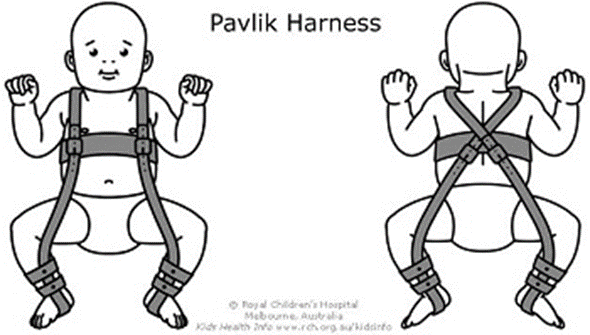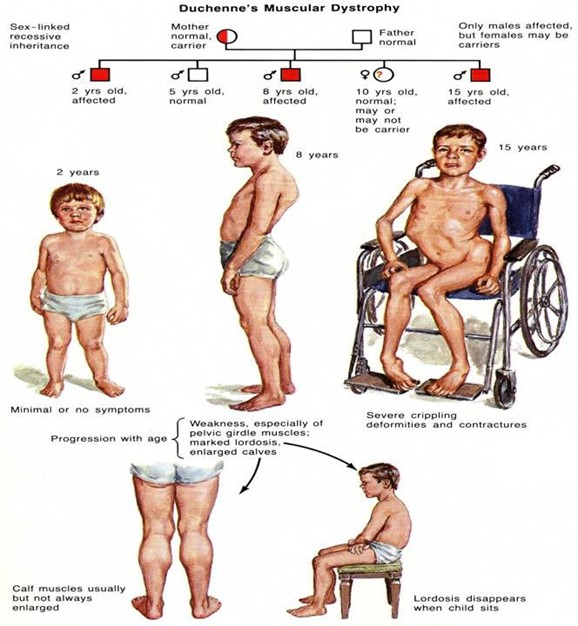A nurse is reinforcing teaching with the mother of a 2-month-old infant whose provider applied a Pavlik harness 1 week earlier for the treatment of developmental hip dysplasia.
Which of the following statements by the mother indicates an understanding of the teaching?
"I will adjust the harness straps every day.".
"I will place the diaper over the harness.".
"I will gently massage lotion on his skin around the harness clasps.".
"I will check my baby's skin three times each day.".
The Correct Answer is D
Checking the baby’s skin three times each day can help the mother monitor for any skin irritation or breakdown caused by the harness.
This can help prevent complications and ensure that the harness is being used safely and effectively.

Choice A is not the best answer because the mother should not adjust the harness straps on her own.
This should be done by a healthcare provider to ensure that the harness is properly fitted.
Choice B is not the best answer because the diaper should be placed under the harness, not over it.
Choice C is not the best answer because massaging lotion on the skin around the harness clasps may not be necessary and could potentially cause skin irritation.
Nursing Test Bank
Naxlex Comprehensive Predictor Exams
Related Questions
Correct Answer is D
Explanation
Difficulty climbing stairs is an early sign of muscular dystrophy.
This is because the condition causes progressive muscle weakness, which can make it difficult for the child to perform physical activities that require muscle strength.

Choice A is not the best answer because high fevers and tiredness are not specific to muscular dystrophy and can be caused by many other conditions.
Choice B is not the best answer because muscular dystrophy causes muscle weakness, not increased muscle strength.
Choice C is not the best answer because respiratory infections and obesity are not specific to muscular dystrophy and can be caused by many other conditions.
Correct Answer is C
Explanation
A nurse caring for a toddler who had a cast applied 2 hours ago due to multiple fractures of the right hand should report immediately to the charge nurse if the fingers on the right hand have a capillary refill of 4 seconds.
This could indicate that there is a problem with circulation.
Choice A is not an answer because it is not unusual for a child to not attempt to move her right arm or fingers after having a cast applied.
Choice B is not an answer because it is not unusual for the fingertips of the right hand to be swollen and bruised after having a cast applied.
Choice D is not an answer because it is not unusual for a child to not keep their arm elevated on a pillow after having a cast applied.
Whether you are a student looking to ace your exams or a practicing nurse seeking to enhance your expertise , our nursing education contents will empower you with the confidence and competence to make a difference in the lives of patients and become a respected leader in the healthcare field.
Visit Naxlex, invest in your future and unlock endless possibilities with our unparalleled nursing education contents today
Report Wrong Answer on the Current Question
Do you disagree with the answer? If yes, what is your expected answer? Explain.
Kindly be descriptive with the issue you are facing.
